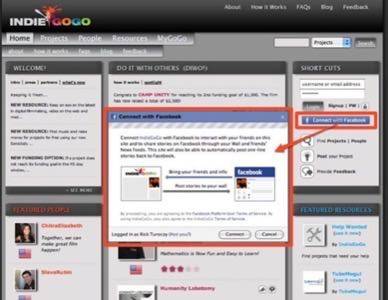Facebook Connect – the service that allows developers to access Facebook data from outside of the Facebook chrome – has been met with both cautious optimism and healthy skepticism. And with good reason. The service holds the potential to revolutionize the way we interact with social sites the Web over. At the same time, it gives Facebook access to a great deal of information about how users interact with other social sites.

To date, the sites allowed to use Facebook Connect have been few and far between. But that may soon change, given today’s announcement that Facebook is accepting more developer submissions.
Like its chief competitor Google Friend Connect and more recent entrant Yahoo! Open Strategy, Facebook Connect offers developers access to a number of baked-in features that can both save development time and enhance the Facebook experience for users by leveraging data that already exists within Facebook.

ReadWriteWeb’s Sarah Perez explained the offering this way:
“Through the seamless Facebook Connect integration, sites can access your Facebook account details and friend graph and move that data back and forth between their site and Facebook. For example, people commenting on a blog using the Moveable Type platform will be able to login via Facebook Connect.”
How long until we see more sites?
Another similarity between Facebook Connect and Google Friend Connect? Both services have put developers in a “hurry up and wait” stance, as the features have only been accessible to a select few.
This announcement, however, promises to increase the number of sites leveraging the platform, so long as those sites comply with Facebook Connect policies.
But how many sites and when those sites will be live with Facebook Connect are anyone’s guess.
Like the Apple App Store, Android Market, and other controlled offerings, the exclusivity surrounding Facebook Connect carries with it a certain amount of prestige. No doubt there are any number of developers who have already applied and are champing at the bit to be included in the next round of approved sites.
While it will be interesting to see how many developers choose to submit sites for inclusion, it will be even more interesting to see whom Facebook chooses to approve.
















